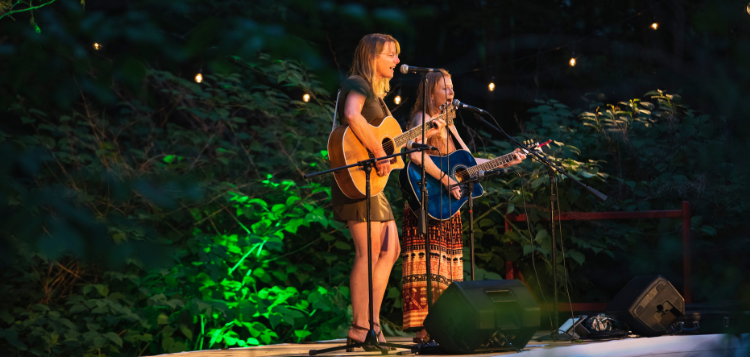A century ago as the world slowly emerged from the devastating Spanish Flu pandemic a new organization was established in Canada to bring education, entertainment and cultural enlightenment to rural areas.
As Canada emerges from another pandemic Muskoka Chautauqua continues to carry the torch and position themselves for a bright future.
“Chautauqua” is an Iroquois word with a few meanings – “a bag tied in the middle” or “two moccasins tied together” and it describes the shape of Chautauqua Lake, located in southwest New York. This area was the setting for the first educational assembly (Chautauqua Institution) in 1874 and so provided the name to the movement.
This year marks the 100th anniversary of the incorporation and the Canadian Chautauqua Institution and although the plans are still somewhat dependent on covid restrictions, Muskoka Chautauqua plans to mark the occasion with a summer arts and culture festival in Windermere from August 6 -15.
“It’s still pretty similar to the way it was 100 years ago near, and very near where it all started at Windermere House,” says Gayle Dempsey, who runs Chautauqua with Gary Froude from their property overlooking Lake Rosseau. “100 years ago we were just emerging from a pandemic and ready for the Roaring Twenties, and I feel like we’re ready for the Roaring Twenties again.”
Chautauqua’s goal is to provide high calibre, accessible year-round arts, culture and heritage programming to residents and visitors of the Muskoka region, surrounded by nature on the shores of Lake Rosseau. Muskoka Chautauqua’s activities always ramp up during the summer months but this year the centennial makes the occasion extra special.
The line-up includes a visit from jazz artists the Morgan Childs Lakeside Quartet, the annual authors panel and the Hot Docs video documentary series among many other planned activities.
“It should be amazing,” says Froude. “We’ll have the Toronto All-Star Big Band playing on the shore by Windermere House. That will be a boat-in event where people can pay what they want.”
From an outdoor art gallery to a pop-up theatre in the woods, this year’s version of the Chautauqua will likely resemble that of the original celebrations.
Tobin Island on Lake Rousseau was the setting of the first Chautauqua.
According to the Chautauqua archives, which are now housed at the Muskoka Lakes Museum in Port Carling, a typical day at Chautauqua would be divided into education in the morning, recreation in the afternoon and entertainment in the evening. It was an opportunity for rejuvenation in a beautiful natural setting, through intellectual challenge, physical workouts and artistic and spiritual enlightenment.

In Muskoka, an extremely important part of this movement was the Reading Circle, whose intention was to introduce and advance the works of Canadian authors. Chautauqua weeks featured famous authors of the day such as Bliss Carman, Charles G. D. Roberts, E. J. Pratt, and Dorothy Livesay reading from their works and discussing current issues.
“At that time Muskoka was actually known as Canada’s literary capital,” says Dempsey. “And that continues to be a mainstay of what we do.”
The current iteration of Muskoka Chautauqua grew out of the Muskoka Lakes Music Festival, which began in 1997. Out of a need to expand beyond musical offerings, and upon the discovery of the historical Chautauqua in Muskoka, a multidisciplinary arts community was formed.
Dempsey and Froude say they’re both grateful for the financial support of both Fednor and the province, as well as local groups like Explorers Edge, Muskoka Tourism and the Muskoka Lakes Chamber Of Commerce.
For all the latest news on the upcoming celebrations and events visit https://www.muskokachautauqua.com/about/.
Don’t miss out on Doppler!
Sign up here to receive our email digest with links to our most recent stories.
Local news in your inbox three times per week!
Click here to support local news


Join the discussion: